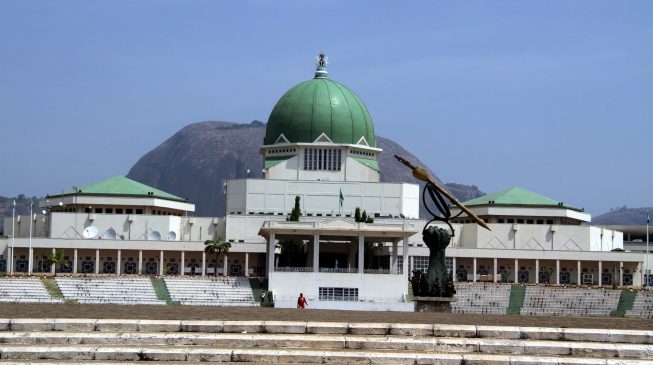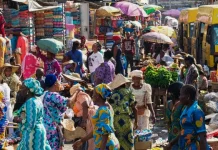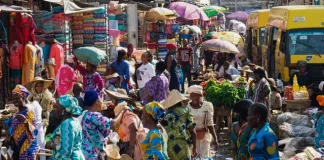There appears no end to the high drama surrounding the alleged disbursement by the Federal Government of the $321 million Gen. Sani Abacha’s loot, repatriated from Switzerland, without clearance from the National Assembly.
While the Senate insists that it is unaware of any budgetary proposal from the executive regarding the sharing of the money, the House of Representatives expressed surprise over claims that the Presidency ordered the distribution of the monies to indigent Nigerians prior to the 2019 elections.
But the Presidency insists that the implementation of the disbursement mainstreamed in the Federal Government’s Social Investment Programme (SIP) and meant to address abject poverty commenced since August last year, after the programme met the back-end requirement of the World Bank to ensure accountability and transparency of the distribution.
However, according to the Senate Appropriation Committee led by Senator Danjuma Goje, such expenditure was never part of the 2018 budget.
A member of the committee who asked not to be named lamented that the matter was gradually ending up under the carpet.
According to him, since the Federal Government announced its plans to share the money to poor households mid last year, there has been no communication to the Senate regarding how it would be done.
The All Progressives Congress (APC) senator who hails from one of the northern states, however, insisted that government should comply with the provisions of the Constitution, which stipulates that all such monies accruing to it be appropriated by the National Assembly.
The Chairman of the Senate Committee on Domestic and Foreign Debt, Senator Shehu Sani, was one of the first set of lawmakers to protest government’s decision to share the money to poor households.
According to him, sharing of the loot to 180m Nigerians was impossible, adding that the money would end up with beneficiaries nominated by governors, ministers, lawmakers and the President’s men. So, it should be tied to projects that Nigerians could see with their eyes.
The Chairman of the House of Representatives Committee on Legislative Budget and Research, Timothy Golu said: “As I speak to you now, I don’t know anything about such money and I don’t want to speculate over what I don’t know. I must be sure of the facts before barring my mind on the issue. This is a question for the Finance Ministry to answer.”
A member of the House Committee on Appropriation, Mr Olajide Olatunbosun, who represents Atisbo/Saki East/Saki West Federal Constituency of Oyo State, reinforced Golu’s position.
The duo, however, admitted that the National Assembly approved the release of the N500b in the 2018 budget for the implementation of the SIP across the 36 states of the federation. But that has nothing to do with the Abacha loot
The programme include the N-Power, Conditional Cash Transfer, CCT, Home Grown School Feeding among others, meant to assist petty traders, university graduates, NCE holders and other underprivileged Nigerians.
The House last year called on the authorities to pay into the Consolidated Revenue Account, the last tranche of the loot and all other proceeds of corruption.
Faulting alleged moves by the government to share the Abacha loot to the poor, the House directed that such monies should be evenly distributed to the 36 states of the federation in line with the current revenue sharing formula.
The call was consequent upon a motion of urgent national importance sponsored by Mr. Karimi Sunday, who argued that the FG’s move to share without appropriation was in breach of section 12(1) of the 1999 Constitution (as amended), which provides that treaties and agreements reached by the Federal Government must be ratified by the National Assembly.
While the NASS is singing a different tune, the Special Adviser on SIP to the President in the Office of the Vice President, Mrs. Maryam Uwais informed The Guardian that the programme has already affected over 3 million beneficiaries captured in the register of the poorest of the poor and vulnerable, built by the Office of the SIP in collaboration with the World Bank.
She disclosed that the repatriated loot came in handy because the poverty indication was so high, while the N500b provision in the budget normally gets only 25 per cent releases.
“Our NSR currently comprises 814, 376 poor and vulnerable households, consisting of 3, 245, 630 individuals, from 28 states, including Abia, Adamawa, Akwa Ibom, Anambra, Bauchi, Bayelsa, Benue, Cross Rivers, Delta, Ekiti, FCT, Gombe, Imo, Jigawa, Kaduna, Kano and Katsina.
Others are Kebbi, Kogi, Kwara, Nassarawa, Niger, Osun, Oyo, Plateau, Rivers, Taraba and Zamfara states. We are at different stages of collation in these states, and also begun training or expecting data in the remaining four states. The above is as at April 5.
“We will cover more states (more than the 28 we have now) with payments once our procurement processes for agents in the new states are completed because it is so slow,” she stated.
The register of the poor, she said is a dependable data bank, which is not just for the purpose of distribution of repatriated Abacha loot, but a reliable register for development partners, as well as public-spirited philanthropists willing to assist in poverty alleviation in the states or communities.
Source: Guardian





